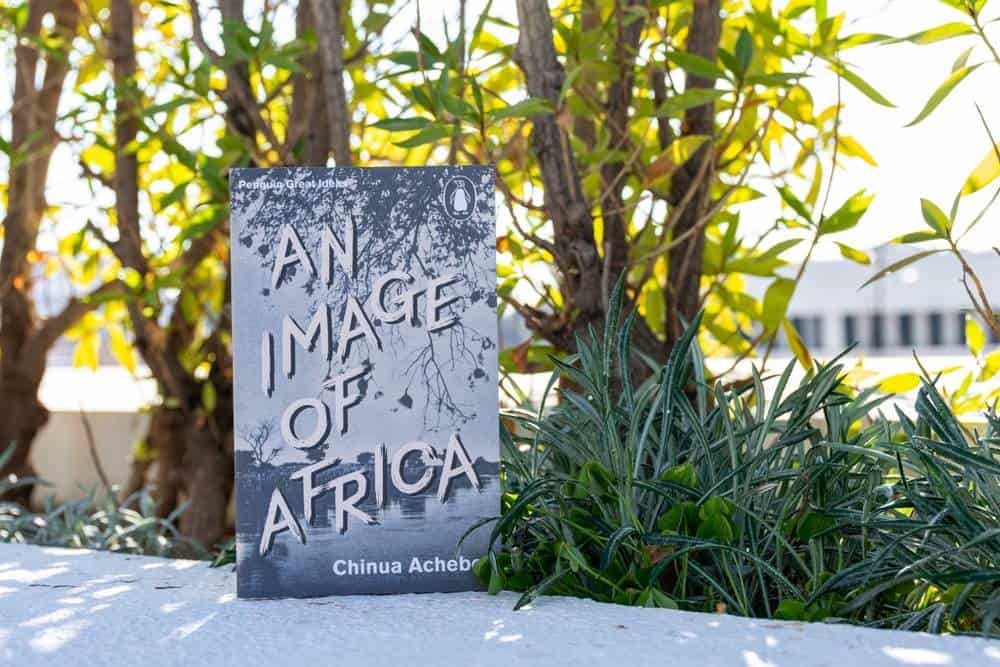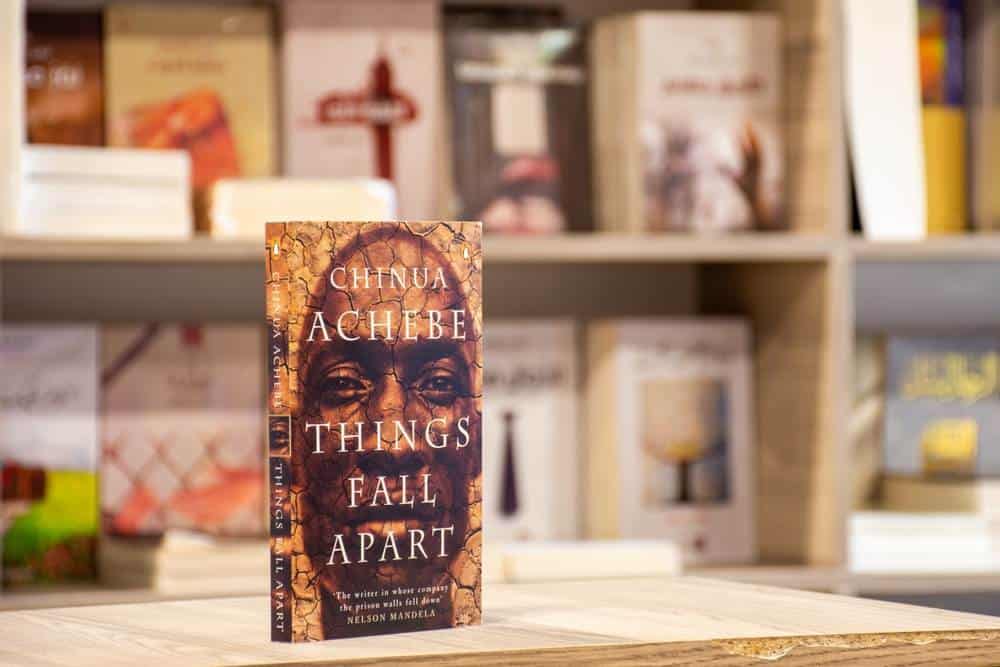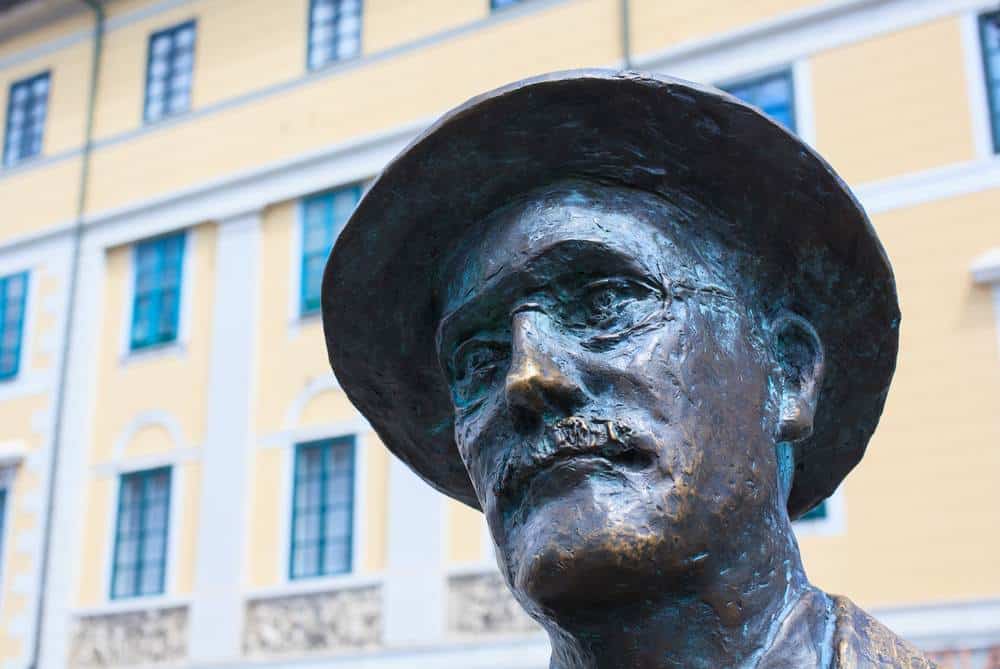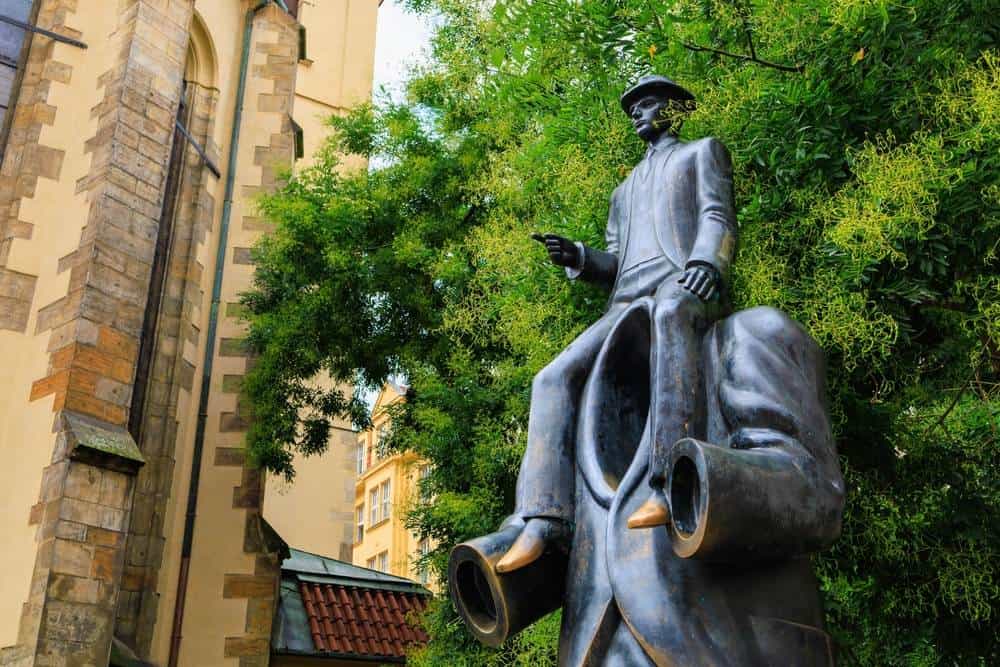Chinua Achebe is a name that resounds with critically acclaimed prestige in the world of literature, especially within the African domain. Born in Nigeria, Achebe remarkably set the stage for a new epoch in African literature, earning him the title of “the godfather of modern African literature.”
His work has been pivotal at the dawn of many African countries’ independence, guiding the narrative and perception of Africa through his compelling storytelling.
Through this blog post, we aim to unravel the story of Chinua Achebe, shedding light on this literary icon’s life, work, perspectives, and legacy.
Who Was Chinua Achebe?
Understanding the life and work of Achebe is tantamount to appreciating African literature’s depth and richness. To say that the history of Nigeria cannot be told without referring to Achebe’s voice is an understatement.

His writing style, themes, and perspectives have transcended the norm, providing a unique lens to view and understand the African narrative.
Achebe’s literary journey began with his debut novel ‘Things Fall Apart‘ in 1958, which went on to receive global recognition and numerous accolades, including the prestigious Man Booker International Prize.
Not only did Achebe pen down engaging stories, but he also used his work as a platform to engage with social issues. From interpreting Nigerian oppression to participating in contemporary discussions on social justice and equality.
In a world where literature often mirrors society, understanding Achebe’s life and work gives readers a clear and authentic picture of African heritage, culture, and societal realities. This understanding is a crucial step toward appreciating the value and significance of African literature in the global literary landscape.
1. Early Life and Education
Born on November 16, 1930, in Ogidi, a large village in Nigeria, Chinua Achebe was raised within the folds of the Igbo (also spelled Ibo) culture. His early education was steeped in the rich tapestry of Igbo traditions and folklore, which would significantly shape his literary creations later on.
Achebe’s academic journey started at the Church Missionary Society’s school, where the main language of instruction was Igbo. But, at the age of eight, he began learning English, a shift that some argue helped foster a deep sense of Igbo cultural pride within him.
Educational Background
Achebe’s initial career trajectory was aimed toward medicine, inspired perhaps by a societal emphasis on the prestige associated with the medical profession. He carried this aspiration to the University of Ibadan, one of the foremost universities in Nigeria. However, a significant turning point in his life came when he decided to switch from medicine to studying English and literature.
This decision was not an easy one, but it was a change that would set Achebe on the path to becoming one of Africa’s most celebrated literary figures.
While at the university, Achebe was influenced by a small number of Nigerian authors publishing in English, including Amos Tutuola and Wole Soyinka, who taught at his university. These interactions served as a catalyst for Achebe, stoking his interest in literature and fostering a desire to change the narrative around West African stories.
Impact of Achebe’s Shift toward Literature
The impact of this switch from medicine to literature was profound, providing the foundation for Achebe’s illustrious literary career. The study of English literature exposed Achebe to various writing styles and narratives, ultimately shaping his unique storytelling approach. His works often reflected a conscious effort to reclaim the African narrative from the stereotypical portraits painted by European authors.
For example, his novel Things Fall Apart, set in the 1890s, presents a striking contrast between Nigeria’s white colonial government and the traditional culture of the indigenous Igbo people, shattering European stereotypes of native Africans.
Furthermore, Achebe’s educational background played a pivotal role in developing his critical perspective on literature and its representation of Africans.
For instance, in his Chancellor’s Lecture at Amherst in 1975 titled “An Image of Africa: Racism in Conrad’s Heart of Darkness”, Achebe critiqued Joseph Conrad’s portrayal of Africans, asserting that Conrad’s novel dehumanized Africans and depicted Africa as a battlefield devoid of humanity.
In essence, Achebe’s educational journey, marked by a significant shift from medicine to English and literature, greatly influenced his literary works.
2. Literary Achievements
Chinua Achebe’s literary prowess is most notably exemplified in his seminal work, Things Fall Apart, published in 1958. This novel unfolds the narrative of an Igbo village and its reaction to British missionaries and colonial authorities.
It was followed by a sequel, No Longer at Ease, published in 1960, which further explored themes of traditional culture clashing with modern society through the lens of Obi, a civil servant who is also the grandson of the main character from Things Fall Apart.
- Other Literary Works: Achebe’s mastery of literature extended far beyond novels as his oeuvre includes numerous short stories, poetry, essays, and children’s books. His unique storytelling style, heavily reliant on the Igbo oral tradition, seamlessly combines straightforward narration with representations of folk stories, proverbs, and oratory.
- Themes: The richness of his works lies in their multifaceted exploration of themes such as culture and colonialism, masculinity and femininity, politics, and history.
- Man Booker International Prize: In recognition of his exceptional contributions to literature, Achebe was awarded the 2007 Man Booker International Prize. He served as Professor of African Studies at Brown University from 2009 until his death, influencing a new generation of writers and scholars with his teachings.
- An African Voice: One of the most significant aspects of Achebe’s work is the way he found an African voice in English. As noted by Kwame Anthony Appiah, Achebe enabled readers of English globally to experience a particular relationship to language and the world that felt natural, almost transparent. This achievement highlights the depth of his skill and creativity.
Overall, Achebe’s literary achievements have profoundly influenced African literature and the literary world at large. His work continues to be extensively analyzed, forming the basis of a vast body of scholarly work.
The annual Chinua Achebe Literary Festival celebrates his enduring legacy, reaffirming the enduring relevance of his contributions to literature.
3. Achebe’s Perspective on African Literature
Chinua Achebe, renowned as the “father of modern African literature“, held profound views on what constitutes African literature.
His perspectives, articulated through his essays and particularly in his piece “The African Writer and the English Language”, have significantly shaped contemporary interpretations of African literature.
Achebe’s Conception of Literature
Achebe firmly believed that literature plays a crucial role in allowing us to encounter and manage threats to integrity that we face in real life, providing a veritable weapon for coping with these threats.
This belief deeply influenced his writings, and it is palpable in his narratives that depict the upheavals faced by traditional African societies during colonial times.
Achebe’s literary works are rich in traditional Igbo folklore and Christian influences, reflecting a delicate balance between Western and African values. He sought to escape the colonially imposed perspective that framed African literature at the time, creating a uniquely African voice.
The Danger of Not Having Your Own Stories
From a young age, Achebe recognized the danger of Africans not having their own stories or literature. After reading colonial literature like “Allan Quatermain” in school, he realized the power of narrative and the importance of having one’s own voice. This realization became a driving force in his life, leading him to create literature that authentically represented the African experience.
His first novel, “Things Fall Apart“, was a manifestation of this drive, vividly portraying the struggles of the Igbo people in the face of white Christian colonization.
Influencing Modern Interpretations of African Literature
Achebe’s perspective on African literature has greatly influenced its modern interpretations. He challenged the status quo, asserting the right of Africans to tell their own stories. This shift in perspective led to a more nuanced understanding of African literature globally, moving away from stereotypical portrayals of Africa and towards a more authentic representation.
The magnitude of Achebe’s influence is akin to that of Shakespeare on English writers or Pushkin on Russians, forever changing the landscape of world literature.
His work not only reshaped the way African literature is viewed but also inspired generations of African writers, encouraging them to express their unique voices and stories. Achebe’s pioneering efforts have been instrumental in establishing African literature as a significant and influential genre within the global literary arena.
4. Achebe and Social Issues
One of the hallmarks of Chinua Achebe’s work is his engagement with significant social issues. This engagement is often channeled through intricate narratives that vividly depict life in pre-colonial, colonial, and post-colonial Nigeria.
Achebe’s novels, such as “Things Fall Apart” (1957), “No Longer At Ease” (1960), “Arrow of God” (1964), “A Man of People” (1966) and “Anthill of Sawannah” (1989), present a panorama of themes like cultural conflict, corruption, generation gap, pride, and egoism.
Achebe’s interpretation of Nigerian oppression is particularly noteworthy. Using his extraordinary storytelling skills, he paints a vivid picture of the struggles faced by the Nigerian people during different eras.
His narratives delicately intertwine personal stories with broader sociopolitical contexts, offering readers a deep understanding of the complex dynamics of oppression.
Relevance in Contemporary Social Discussions
Despite the passage of time, Achebe’s works retain their relevance in contemporary discussions about social justice and equality.
- His critical examination of power structures, exploitation, and discrimination resonates strongly with current global issues.
- Achebe’s distinctive approach to literature goes beyond mere storytelling; his novels serve as powerful social commentaries.
- As Achebe himself described, he saw his role not just as a writer but also as a teacher whose purpose was to dispel harmful myths about Africa and its people.
- Achebe’s stories continue to inspire readers, scholars, and activists around the world. They provide a critical framework for interpreting African experiences and challenge stereotypical views.
- His characters, particularly the metaphorical Tortoise who appears in multiple stories, serve as symbolic figures representing various societal aspects, further enriching the social commentary inherent in his works.
Chinua Achebe’s profound engagement with social issues through his literary works remains a testament to his ability to weave complex narratives with intrinsic social and political commentary. His unwavering commitment to tackling these issues has not only enriched African literature but also provided timeless insights into the human condition, making him an enduring icon of literary activism.
5. Achebe’s Legacy
The influence of Chinua Achebe echoes through the pages of contemporary literature, with his works serving as a torch for future generations of writers. His legacy is not only palpable in African literature but also reverberates throughout the global literary community.

Renowned for his storytelling prowess and ability to encapsulate the African experience authentically, Achebe’s novels have become an integral part of world literature.
Achebe’s impact on African literature is significant, having inspired a generation of writers to delve into the intricacies of postcolonial African society. His works, such as ‘Things Fall Apart‘, still stand as a beacon of African literary expression, used by many as a foundation for understanding and appreciating African literature.
He has been instrumental in inspiring celebrated authors like the African-American Nobel Laureate Toni Morrison, attesting to his far-reaching influence.
Notably, Achebe’s distinctive use of English, infused with elements of his native Igbo language, carved out a unique space for African perspectives and experiences in literature. This innovative approach challenged the dominance of Western literary traditions, fostering a more diverse and inclusive literary landscape.
Even beyond his own writing, Achebe enthusiastically mentored emerging writers and helped establish literary institutions such as the Association of Nigerian Authors and the African Writers Series. His unwavering dedication to nurturing African literature has left an indelible mark on the continent’s literary scene.
Global Influence
Transcending the boundaries of Africa, Achebe’s reach extends globally.
- His works have been translated into over 50 languages and continue to be read and studied worldwide, further cementing his status as a literary icon.
- This international recognition is not merely a testament to his storytelling skills but also underlines his contribution to the global appreciation of African literature.
- Through his works, Achebe has given the world a lens to view and understand the richness of African culture and its complexities.
- His narratives continue to resonate with readers across the globe, unraveling universal themes that transcend geographical borders.
The enduring relevance of his works, coupled with the respect and reverence he commands in literary circles, cements Chinua Achebe’s place in the global literary canon.
FAQs
Who is the literary genius behind Chinua Achebe?
The literary genius behind Chinua Achebe is Chinua Achebe himself.
Why is Chinua Achebe considered Africa’s most iconic novelist?
Chinua Achebe is considered Africa’s most iconic novelist due to his groundbreaking work in African literature, especially his novel ‘Things Fall Apart,’ which is widely regarded as a masterpiece and has had a significant impact on African literature and postcolonial studies.
What is the significance of the ‘Things Fall Apart’?’
‘Things Fall Apart’ holds immense significance as it portrays African culture, traditions, and the effects of colonization. It challenges the dominant narratives of colonial literature by presenting a nuanced and authentic representation of African perspectives.
What are some notable works by Chinua Achebe?
Apart from ‘Things Fall Apart,’ some other notable works by Chinua Achebe include ‘No Longer at Ease,’ ‘Arrow of God,’ ‘A Man of the People,’ and ‘Anthills of the Savannah.’
What awards and honors did Chinua Achebe receive?
Chinua Achebe received numerous awards and honors, including the Man Booker International Prize in 2007, the Nigerian National Merit Award, and the Commonwealth Poetry Prize, among others.
What was Chinua Achebe’s impact on African literature?
Chinua Achebe played a pivotal role in shaping African literature. He not only paved the way for African writers but also challenged the prevailing stereotypes and misrepresentations of Africa. His works inspired generations of African authors to write their stories and reclaim their narratives.
Conclusion
In the course of this blog, we have explored the life and works of the Nigerian literary icon, Chinua Achebe. Born in Nigeria in 1930, Achebe’s journey from a medical student to a renowned author is as captivating as his novels. His decision to switch from Medicine to English at the University of Ibadan set the stage for his illustrious career as a writer.
Achebe’s literary achievements are nothing short of remarkable. His first novel, ‘Things Fall Apart,’ created waves in the literary world and laid the foundation for his distinguished African Trilogy. The recipient of prestigious awards such as the Man Booker International Prize, Achebe has left an indelible mark on African literature and the global literary landscape.
Achebe’s legacy is far-reaching. His unique storytelling style, heavily influenced by Igbo oral tradition, has inspired future generations of writers. His contribution to giving African literature global recognition cannot be overstated.
Every year, the Chinua Achebe Literary Festival celebrates his enduring influence and remarkable contributions to the literary world.
We encourage you, dear reader, to delve deeper into Achebe’s works. Explore his novels, his essays, and his views. Immerse yourself in his vivid narratives and nuanced characters.
There is much to learn from this Nigerian literary icon about African literature, and about life itself. Let Chinua Achebe guide you
We bring you the inspiring stories of well-known authors and other influential personalities from around the world. Stay Connected!




